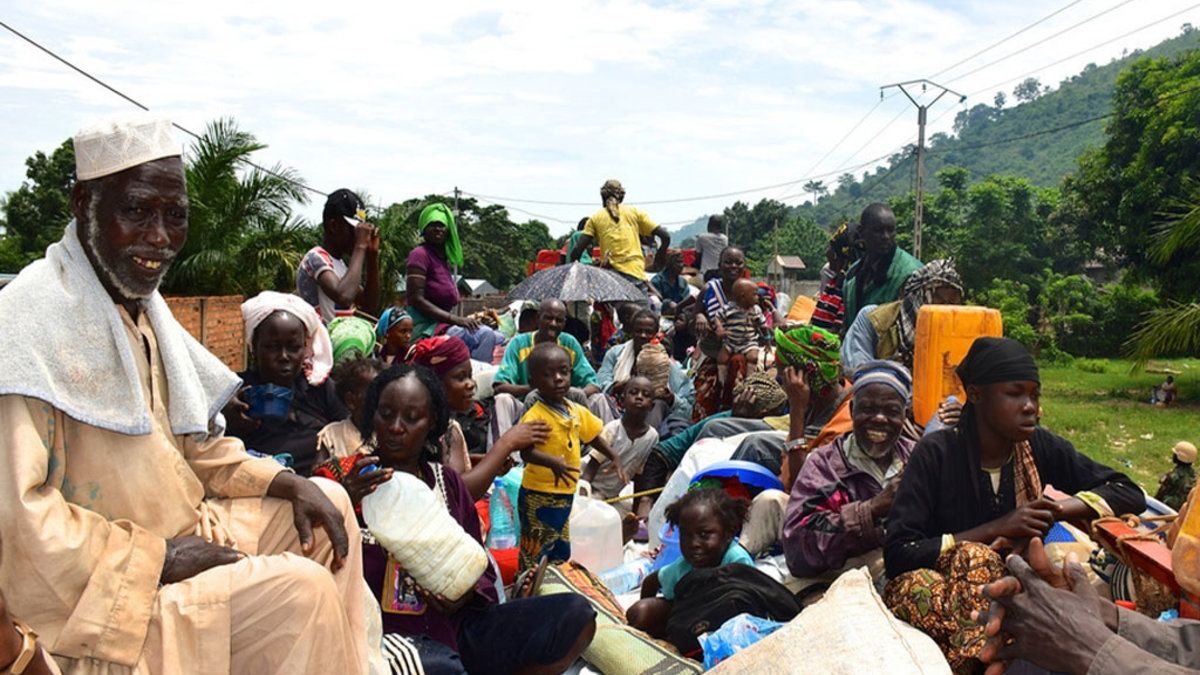
Imagine a land where the sun sets not only on the horizon but also on the hopes of countless families displaced by conflict, climate change, and a global pandemic. This is the story of the Central African Republic (CAR), a country grappling with the complexities of forced displacement but finding glimmers of hope through a groundbreaking initiative. The ‘Support to Communities Affected by Displacement’ (PACAD) project, a collaborative effort between the government, UNOPS, and the World Bank, stands as a beacon of innovation and compassion, aiming to transform adversity into opportunity.
A New Dawn for Displaced Communities
In the heart of Africa, the CAR has embarked on a journey of recovery and resilience, driven by the PACAD project. This initiative seeks to rehabilitate essential infrastructure, including roads, schools, and healthcare facilities, while introducing solar streetlights to enhance security in areas ravaged by instability. The project’s multifaceted approach doesn’t stop at infrastructure development; it also includes a cash transfer program designed to provide displaced families with the financial means to meet basic needs, stimulate economic growth, and sew the seeds of national reconciliation.
For many, the impact of these interventions has been life-changing. Roads once deemed impassable are now conduits of commerce and connection. Schools that lay in ruins now stand as sanctuaries of learning and growth. Healthcare facilities have been restored, offering a lifeline to communities long deprived of essential medical services. Above all, the introduction of solar streetlights has illuminated the darkest corners of displacement, offering safety and a sense of normalcy to those who had lost almost everything.
Empowering Communities, Promoting Stability
The PACAD project is more than a collection of infrastructure initiatives; it is a testament to the power of community and the resilience of the human spirit. Through the cash transfer program, displaced families receive much-needed financial support, enabling them to cover basic expenses, invest in small businesses, and gradually rebuild their lives. This direct support not only alleviates immediate financial burdens but also fosters a sense of inclusion and participation in the nation’s recovery process.
Moreover, the project’s focus on economic growth and national reconciliation has begun to sow the seeds of long-term stability. By creating job opportunities and facilitating access to essential services, the PACAD initiative is helping to knit the fabric of communities back together, promoting social cohesion and reducing the likelihood of future conflicts. The emphasis on solar energy and sustainable development also reflects a forward-thinking approach to addressing the dual challenges of climate change and forced displacement.
A Journey of Recovery and Hope
As the Central African Republic continues to navigate the aftermath of conflict, the PACAD project stands as a testament to what can be achieved when innovation meets compassion. The initiative’s comprehensive approach to addressing the needs of displaced communities has not only facilitated the return of many individuals but has also laid the groundwork for a more inclusive, resilient, and stable future.
Yet, the road to recovery remains long and fraught with challenges. The scars of conflict and displacement run deep, and the specter of climate change looms large. However, the success of the PACAD project offers a blueprint for other nations grappling with similar issues, demonstrating that even in the face of overwhelming adversity, it is possible to light the way forward.
In the end, the story of the Central African Republic and the PACAD project is one of hope, resilience, and the unyielding belief that a brighter future is within reach. As the sun rises over the rehabilitated streets and communities of CAR, it brings with it the promise of a new day, one illuminated by the collective efforts of those who refuse to be defined by displacement but instead are determined to build a legacy of recovery, inclusion, and peace.
